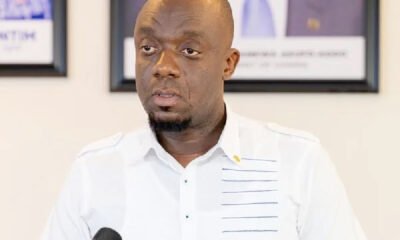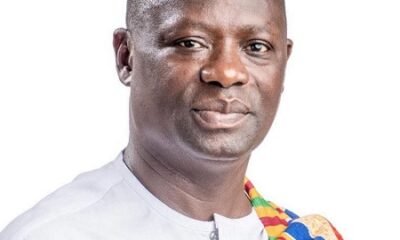News
President Akufo-Addo advocates for strengthened regional security mechanisms at IDEC 2024
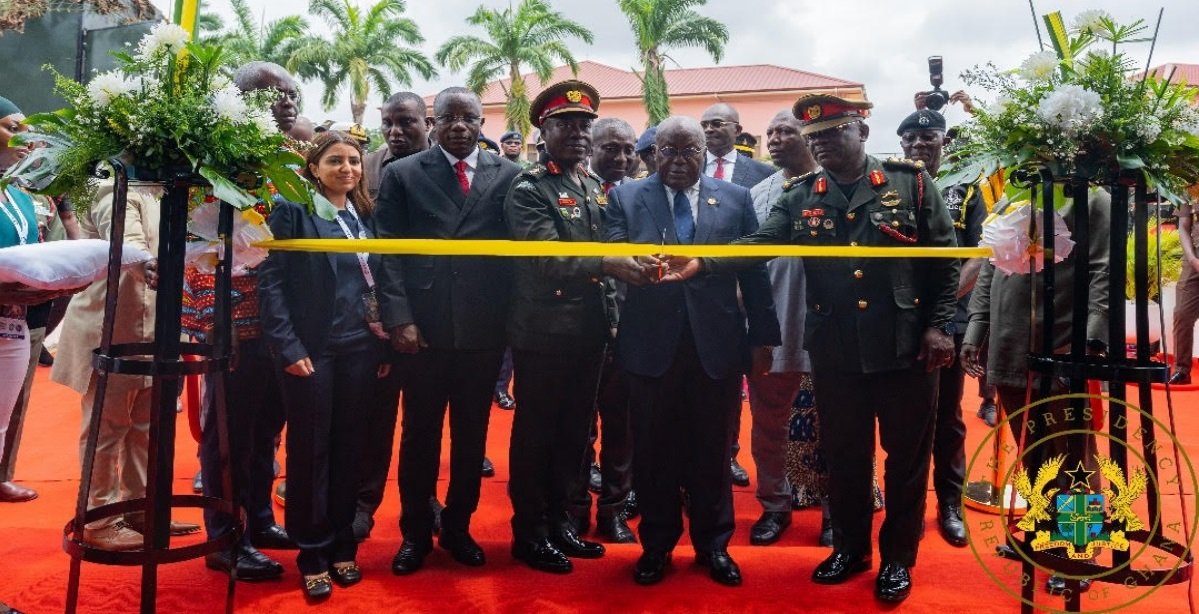
President Nana Addo Dankwa Akufo-Addo, speaking at the opening of the Second International Defence Exhibition and Conference (IDEC) 2024, called for a comprehensive strategy to address the diverse security challenges facing Africa.
Held at the Ghana Armed Forces Headquarters in Accra, the conference gathered defence experts and stakeholders to discuss ways to enhance regional mechanisms for addressing contemporary security issues.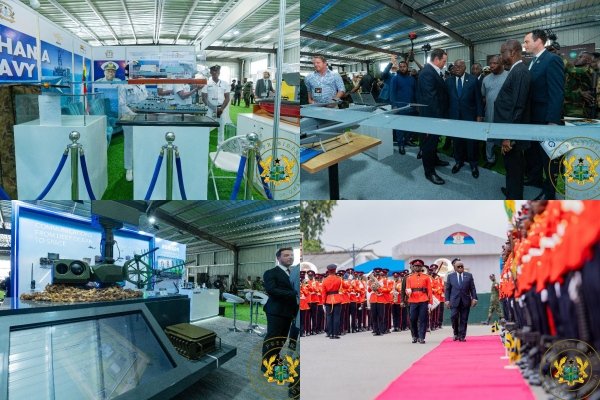
The President highlighted the interconnected nature of security threats on the continent, ranging from terrorism and organized crime to cybersecurity and climate-induced risks.
“The security landscape in Africa is characterized by a variety of threats that are interconnected and often transcend national borders,” he said. “Given the transnational nature of these threats, no single African country can address them alone. It is only through regional cooperation and collaboration that we can effectively counter these challenges,” he said.
President Akufo-Addo proposed several strategies to strengthen regional security mechanisms, including enhancing intelligence sharing and coordination, building capacity for peacekeeping and counter-terrorism operations, and establishing the ECOWAS Standby Force.
He emphasized the importance of intelligence sharing, stating, “Effective intelligence sharing and coordination among African nations are crucial for preempting and responding to security threats. Intelligence is the lifeblood of security operations, and without timely and accurate information, our efforts will be in vain.”
The President also called for increased investment in building the capacity of security forces to undertake peacekeeping and counter-terrorism operations.
He stressed the need for specialized training to deal with both traditional and non-traditional threats, including cyber threats. Additionally, he underscored the importance of establishing the ECOWAS Standby Force to respond swiftly and effectively to threats and uphold democratic governance.
On the issue of maritime security, President Akufo-Addo urged African nations to enhance their maritime security capabilities to protect their vast coastlines and maritime resources.
He advocated for increased investment in naval and coast guard assets, as well as greater cooperation between coastal states.
“Africa’s vast coastline and maritime resources are a critical part of our economic development. We should enhance our maritime security capabilities to protect these resources from illegal activities,” he stated.
Addressing the impact of climate change on security, President Akufo-Addo called for integrating climate security considerations into national and regional security strategies. He emphasized the need for climate adaptation and mitigation measures to enhance the resilience of communities to climate-related shocks.
The President concluded his address by calling for inclusive governance and development to address the root causes of insecurity.
He stated, “Security is not just the absence of violence; it is also the presence of justice, equity, and opportunity. We should address the root causes of insecurity by fostering inclusive governance and promoting sustainable development.”
As the conference progresses, President Akufo-Addo expressed hope for fruitful discussions that would lead to actionable outcomes, contributing to a more secure and prosperous Africa.
“By enhancing our regional mechanisms and fostering closer cooperation among African nations, we can build a safer and more secure continent for future generations,” he concluded.
News
Ministry of Health marks lead awareness week to curb lead poisoning
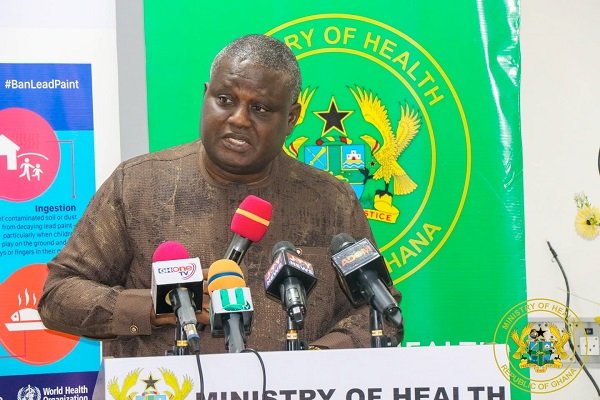
The Ministry of Health (MoH), in partnership with the Environmental Protection Agency (EPA) and development partners, has observed this year’s Lead Awareness Week under the theme “No Safe Level: Act Now to End Lead Exposure.”
The campaign, supported by Pure Earth, aims to educate the public on the dangers of lead poisoning and promote efforts to eliminate lead from paints, consumer products, and the environment.
Speaking on behalf of the Chief Director of the Ministry, Mr. Frank Rajah said lead exposure remains a major public health concern, especially for children, pregnant women, and workers.
He explained that lead poisoning can cause serious and irreversible health effects, including brain damage, developmental delays, learning disabilities, and damage to vital organs such as the kidneys.
Mr. Rajah noted that the effects of lead exposure go beyond health, as they also carry social and economic costs that reduce productivity and hinder sustainable development.
He reaffirmed the Ministry’s commitment to preventive health measures, stronger regulations, and partnerships aimed at achieving a lead-free Ghana.
Dr. Fiona Braka, the World Health Organization (WHO) Representative to Ghana, cited data from the Institute of Health Metrics and Evaluation showing that lead exposure caused over 1.5 million deaths globally in 2021, most of them due to heart-related conditions. It also led to 33 million disability-adjusted life years lost worldwide.
Dr. Braka explained that children are more vulnerable to lead because their bodies absorb it more easily, leading to reduced IQ, learning difficulties, and behavioral problems. In pregnant women, lead exposure can result in miscarriage, stillbirth, premature birth, and birth defects.
She added that WHO, through the Bloomberg Philanthropies Lead Poisoning Prevention Initiative, will continue to support high-risk countries, including Ghana, to adopt clinical management guidelines for lead exposure and strengthen national systems for early detection and response.
The Lead Awareness Week celebration highlights Ghana’s growing commitment to protecting public health and ensuring a safer, lead-free environment for all.
By: Jacob Aggrey
News
NPP Will Surely Return to Power in 2028 — Justin Kodua Declares, Accuses Mahama Government of State-Sponsored Persecution
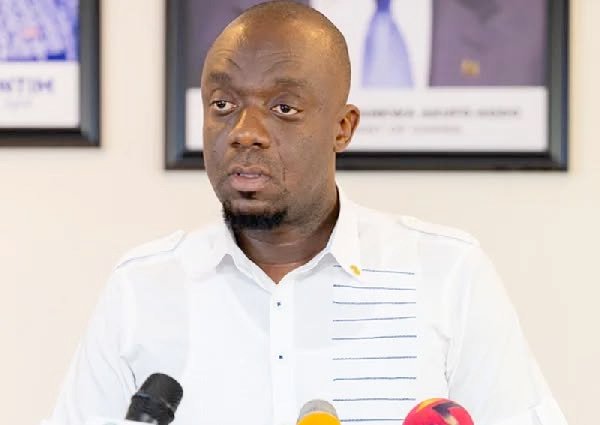
The General Secretary of the New Patriotic Party (NPP), Justin Frimpong Kodua, has expressed confidence that the party will return to power in December 2028, promising that the NPP will present a stronger, united front to the Ghanaian people.
Speaking at a press conference at the party’s headquarters, Mr. Kodua assured members and supporters that despite current challenges, the NPP remains the best option for Ghana’s development.
“We have more than three years to preach to Ghanaians our record and what the New Patriotic Party stands for. I can assure you, issues of apathy and reconciliation will all be addressed. Inshallah, come December 7, 2028, the New Patriotic Party will surely come back to power,” he declared confidently.
Mr. Kodua also used the platform to criticize the John Mahama-led government, accusing it of persecuting NPP members through the abuse of state institutions.
According to him, the ruling National Democratic Congress (NDC) government has “weaponised” state security agencies and the judiciary to target political opponents, describing the situation as a dangerous threat to Ghana’s democracy.
He said the NPP had on several occasions held demonstrations and press conferences to remind the government that Ghana is a country governed by the rule of law, but such calls have gone unheeded.
“Unfortunately, our calls have fallen on deaf ears, but as a party, we shall not back down on our resolve to fight this injustice,” he said.
Mr. Kodua cited instances where NPP members have allegedly been detained beyond the lawful 48-hour limit and subjected to excessive bail conditions.
He stressed that these actions violate Article 14 of the 1992 Constitution, which guarantees that any person arrested or detained must be brought before a court within 48 hours or released on reasonable terms.
He further noted that the practice also contravenes Section 96 of the Criminal and Other Offences Procedure Act (Act 30) and several Supreme Court decisions, including Martin Kpebu vs. Attorney-General, which emphasize that bail must not be punitive or unreasonable.
“Under President John Mahama’s administration, a person is rather presumed guilty until proven innocent. This level of selective justice and intolerance of dissent is eroding public confidence in Ghana’s democratic and judicial systems,” he lamented.
Mr. Kodua described as alarming the growing “culture of silence,” where citizens are allegedly targeted for expressing dissenting opinions on social media, warning that it poses a threat to the nation’s democratic gains.
He reaffirmed the NPP’s commitment to defending justice and freedom, insisting that the party will not relent in protecting the rights of its members and all Ghanaians.
“The repercussions of this culture of silence are dangerous. It reverses the democratic progress we’ve made as a country,” he warned.
In a more hopeful tone, Mr. Kodua announced that the NPP would soon resume issuing membership cards to strengthen its grassroots organization ahead of the 2028 elections.
“I’m happy to announce that starting next week, we’ll continue with the issuing of membership cards to our members,” he said.
He ended his address by reiterating his belief that the NPP will return to power in 2028, saying Ghanaians have experienced both major political parties and can clearly see the difference.
“Ghanaians have tested both the NPP and the NDC, and I tell you, the difference will be clear. The New Patriotic Party will surely come back to power,” he concluded confidently.
— By Jacob Aggrey



